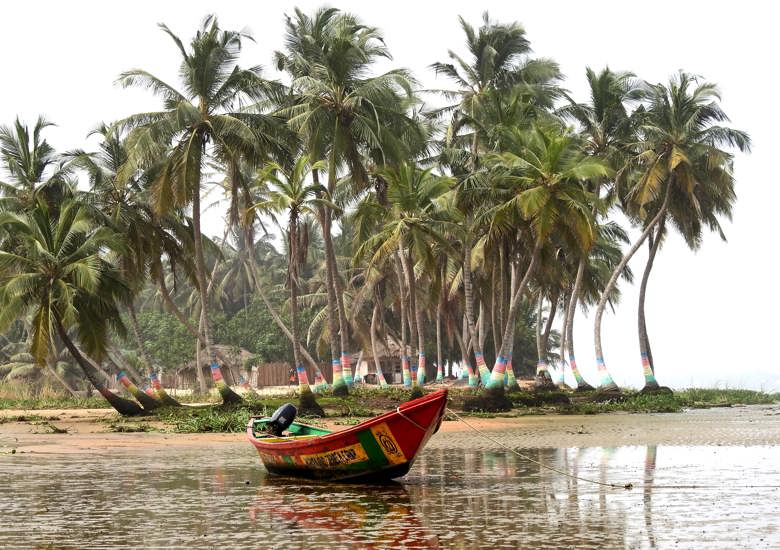Markus Nilsson from AVA taught entrepreneurship in Ghana

Markus Nilsson has been part of Ava since December 2021 as an analyst, something he does alongside his studies at Stockholm School of Economics. This summer, Markus spent a month in Ghana where he and another student held an entrepreneurship programme for young entrepreneurs.
- I and another student received a scholarship that is awarded annually to business students to enable a practical project abroad. We decided to hold an entrepreneurship programme for young people in Ghana, which ran for two weeks at the end of July," says Markus Nilsson.
The programme involved participants coming up with business ideas that they developed while Markus Nilsson and his fellow students taught various business-related areas in the form of lectures and interactive workshops.
- We covered everything from marketing and strategy to budgeting and presentation skills. By the end of the programme, participants had fleshed out their idea into a business plan, which they then presented during a competition in front of a group of judges made up of various local stakeholders. This competition, which was inspired by the dragon's nest, gave participants the opportunity to win a prize in the form of start-up capital.
What inspired you to organise this particular event?
- Both me and my fellow student have an interest in entrepreneurship and we discovered that Ghana is a very entrepreneurial country. A large part of the population are small business owners, which you can see when you travel through the country. There are vendors selling fruit, sunglasses, cold drinks and more everywhere - even in the middle of the road when queues form. We saw great potential in teaching tips on how to grow your business and make it more sustainable in the long run.
Who attended the programme?
- Mainly university students in fields other than business administration. Some specialised in PR and communications, others in sustainability, which then coloured their choice of business idea. As the programme took place in the capital Accra, the majority of participants came from there, but we also had participants who came from the north and west of Ghana. What united them was a drive to start their own business and an interest in learning more. In total, we had 14 participants over the course of the programme, which was great fun. The ideas varied a lot. We had one participant who wanted to build a communications network, one who was aiming for sustainable production of moths in northern Ghana and one who would be involved in plastic recycling. It was exciting to see so much interest in sustainability! We discussed a lot with the participants to understand their challenges and opportunities. We were also told that our programme contributed exactly the knowledge that was missing. One of the participants came up to us and said that the programme had been a real eye-opener for her.
Speaking of which - what does the entrepreneurship scene look like in Ghana? What are the challenges?
- Many participants expressed that they lack guidance and support in the process of starting a business. They often try to find mentors in the form of more experienced entrepreneurs who can help them improve their business. However, mentors are often reluctant to help because there is widespread mistrust based on a fear that apprentices will steal their own business idea. Today, there are already many good initiatives, such as entrepreneurship programmes. Unfortunately, participants often have to pay for such programmes, which requires money that simply does not exist, or that is needed for the business itself. Participants also told us that it is difficult to access capital: interest rates on loans are generally very high and few people know how to go about getting investors. As a result, they often rely on friends and family for financial support.
What are the possibilities?
- What we saw was a strong willpower among those we met. Many dared to dream big and we saw that they had innovative ideas. We also noticed that there is a growing interest in supporting home-grown entrepreneurs. For example, the Ghanaian government has launched an initiative called the National Entrepreneurship & Innovation Program, which aims to support small entrepreneurs. We also had a lot of contact with the Ghana Chamber of Young Entrepreneurs, which is a network for young entrepreneurs and works a lot with government agencies. There are also initiatives from the private sector. Meltwater has founded the Meltwater Entrepreneurial School of Technology in Accra, which helps entrepreneurs get started. There has been a lot of investment in infrastructure and already Accra is becoming a kind of economic hub in West Africa. I believe we will see positive developments in Ghana in the future and I will be following the economic developments with excitement.
Get in touch
Our strategic advisors and consultants help our clients manage complex challenges and create lasting value over time.


